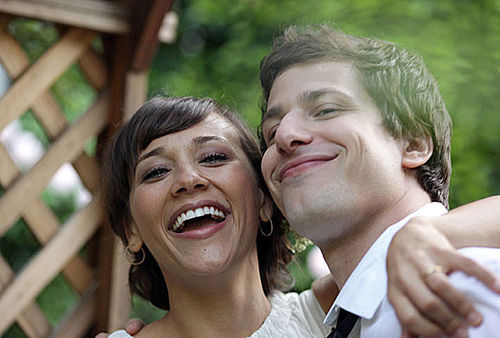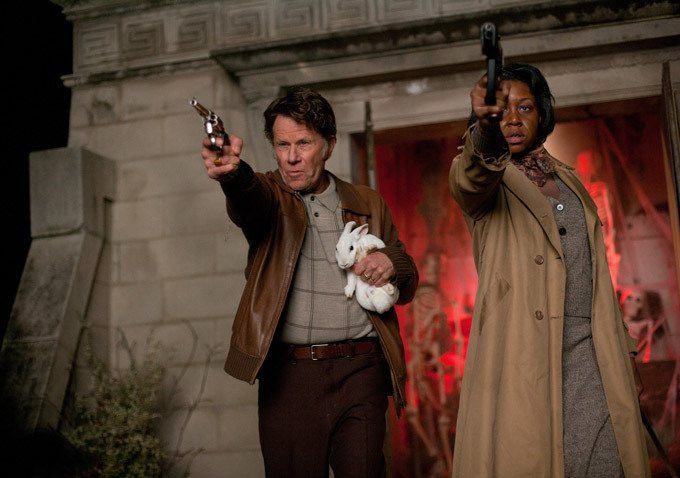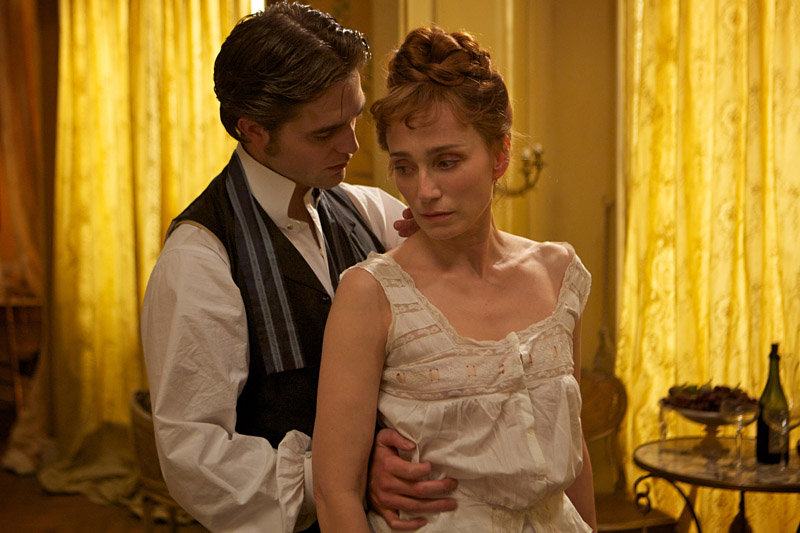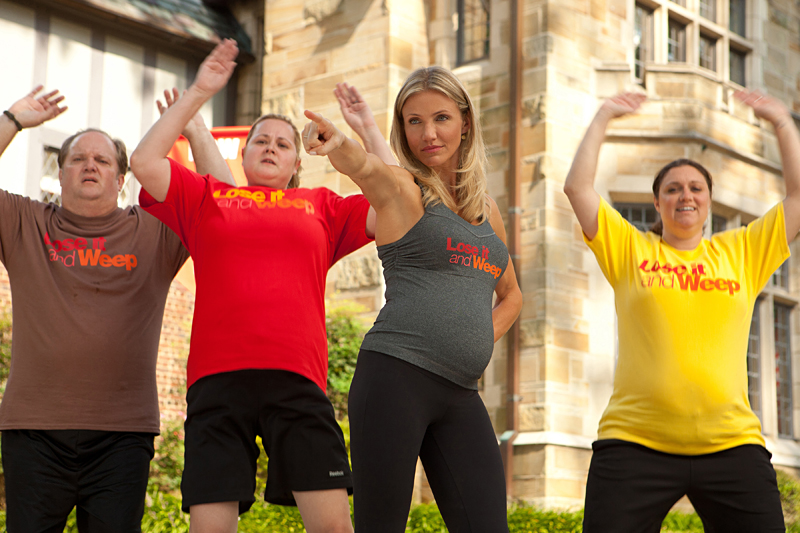In terms of looks, charisma, and talent, Rashida Jones should have been a star a long time ago. But in terms of what she’s ready to offer Hollywood (and what Hollywood finally might be ready to let her accomplish), her belated ascent seems well-timed. Bittersweet breakup comedy Celeste and Jesse Forever, which opens in Seattle Aug. 24, marks Jones’s debut as both a screenwriter (Will McCormack co-scripted) and a name-above-the-title romantic lead (she stars opposite SNL‘s Andy Samberg). In the context of her career, each feels oddly out of character.
After more than a decade of hovering just beyond notoriety in TV shows like The Office and Parks and Recreation, and in supporting roles in films like The Social Network and I Love You, Man, she’s finally ready for more attention—and responsibility. “I generally work with ensembles and like to be second fiddle. I’ve made a career out of doing that,” she tells me by phone. “This movie’s the first time that I’ve consciously put myself at the forefront of something, and it’s slightly scary.” But therein lies Jones’s considerable allure in Celeste and Jesse Forever: She’s game to enact fearfulness fearlessly, and to play abashed unabashedly. When Celeste’s separation from Jesse spirals out of her control, this would-be star vehicle becomes a plausible portrait of a thirtysomething woman on the verge, complete with humiliating comeuppances and crazy-cat-lady hair. In today’s romantic comedies, “women tend to look beautiful and perfect even when everything around them is crumbling,” she says, which is problematic for both cinema and society. “It’s just as dangerous and destructive as women being Photoshopped on billboards. It’s not a real portrayal of how we are.”
At age 36, and firmly in possession of a singular, frankly unfair beauty—she’s a regular on People magazine’s “Most Beautiful People in the World” list—Jones is free of the smothering expectations that accompany young starletdom. “I’ve spent a lot of time talking about doing things and then being inert from the fear of judgment,” she says. “Getting older, fear holds you back less.” Much like Kristen Wiig, another ace ensemble actress who penned her own breakthrough role, Jones has met her mid-thirties headlong, with comedic—rather than surgical—self-effacement.
Yet Jones has always seemed removed from Hollywood’s more desperate side, something that doubtless contributed to her slower passage to stardom and now helps fuel her prepossessing appeal. A daughter of legendary music producer Quincy Jones and actress Peggy Lipton, she didn’t start acting professionally until after graduating from Harvard (where she studied philosophy and religion), and has dabbled in music, politics, even comic book writing (“I didn’t know a lot about it, and for that reason I wanted to do it,” she explains).
She admits to have considered changing careers until she landed her role on The Office six years ago. “I have friends who are clearly born to act—it’s their drive, it’s their passion. They have no choice in a way,” she says. “I feel like I could do something else if I had to. I’m not incredibly attached to the outcome of my career visions. And I feel a bit of guilt about that.” But whether it’s powered by humility or wisdom, she talks of habitually and happily deferring to the other comedians in her midst (from The Office’s Steve Carell to Parks and Recreation‘s Amy Poehler), stepping forward only when—as with Celeste and Jesse—she felt as if she had something unique to offer.
But it’s telling that Jones’s breakthrough is actually a product of intense collaboration—she talks of literally writing side by side with McCormack—and functions as an ensemble, showcasing equally unsung contemporaries like Chris Messina and Ari Graynor. No matter what comes next for her, Jones says she has little interest in straying too far from the pack. “I come from a huge family. I depend on people. I think the reason to be here is to be with everybody else,” she says. “Nobody is great alone. I don’t even think it’s fun to be great alone.”








